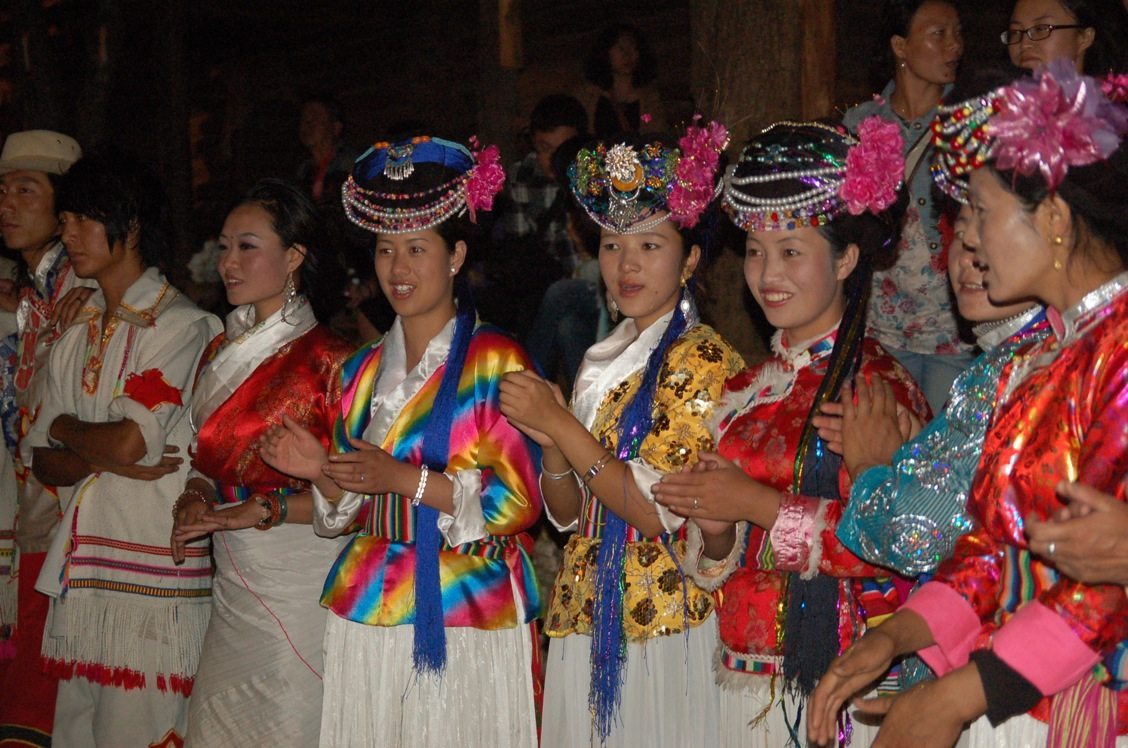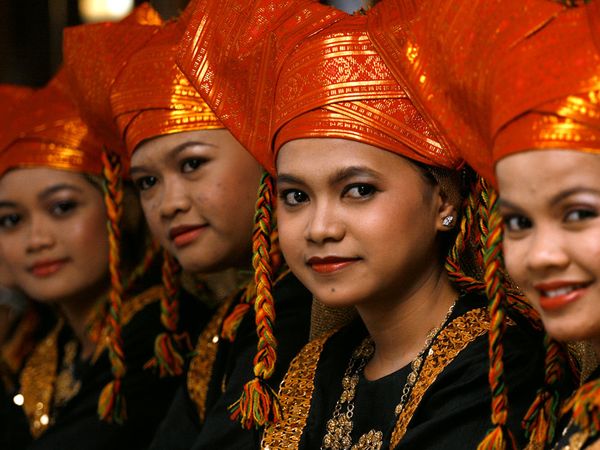Since the time of the ancient Greeks, the mythological Amazons, mysterious warrior women who were accredited with heroic feats and indomitable will, began the narrative of women-dominated societies. Wikipedia defines “matriarchy” as “a social system in which females hold primary power, predominate in roles of political leadership, moral authority, social privilege and control of property at the specific exclusion of men, at least to a large degree”. Matrilineal societies, in which descent passes through the mother’s line instead of the fathers, are also interesting examples of societies where property rights and inheritance are tied to women vs men.
A number of modern-day societies exhibit characteristics of matriarchial and matrilineal communities. Here are two examples that we find fascinating:
The Mosuo of China
Source: Pinterest.com
This matriarchal society of 30,000 lives in an isolated region on the shores of Lake Lugu in southwestern China near Tibet. Families consist of grandmothers, mothers, mothers’ sisters and brothers with the geneology is passed down through the mothers line and children take their mother’s name. Mothers are highly respected and economically in charge. While men and women are considered equal, all income gained through work is handled by a “Dabu”, the smartest, most skilled and capable woman in the family.
In the Mosuo culture, there is no institution of marriage; rather, women choose their partners by literally walking into a man’s home. Couples never live together. and so fathers have little to do with child rearing except for those children in his own matrilineal household.
The Mosuo community is highly stable with a low level of conflict and crime and a high degree of family loyalty and support.
The Mingangkabau People of Indonesia
Source: http://travel.nationalgeographic.com
The Mingangkabau of West Sumatra in Indonesia is the largest known matrilineal society in the world numbering close to four million. But anthropologist Peggy Reeves Sanday notes “Too many anthropologists have been looking for a society where women rule the affairs of everyday life, including government,” she said. “That template–and a singular, Western perspective on power–doesn’t fit very well when you’re looking at non-Western cultures like the Minangkabau. In West Sumatra, males and females relate more like partners for the common good than like competitors ruled by egocentric self-interest. Social prestige accrues to those who promote good relations by following the dictates of custom and religion.”
In the Mingangkabau culture, property, land, and the family name are all passed down through the mothers side: mother to daughter while religious and political aspects of life are the responsibility of the men. It is customary for married women to remain in their mothers home and for their husbands to have a visiting status. Boys traditionally leave the home at the age of 7 and live in a cultural center to learn about religious and cultural teachings. The boys are encouraged to leave their hometown and return when they are adults as educated men.
The key to Minangkabau matriarchy, according to Dr. Sanday, is found in the nature-based religious concept of “adat” expressed in the proverb “growth in nature must be a teacher.” This religion encourages nurturing human relations similar to nurturing plants and ecosystems to build a stronger society.The emphasis on nurturing casts a maternal shadow over daily life. Senior women are revered and highly respected and the oldest village in a group of villages is referred to as the “mother village.”
Interestingly, like the Mosuo, neither male nor female rule is possible in Minangkabau communities because of their strong belief that decision-making should be by consensus and also like the Mosuo, these peaceful people exhibit low levels of violence and conflict.
At Adventurewomen, we’re passionate about what other cultures can teach us about how we can improve the quality of our own lives. When you take the time to explore the world, there are some fascinating treasures you uncover!



